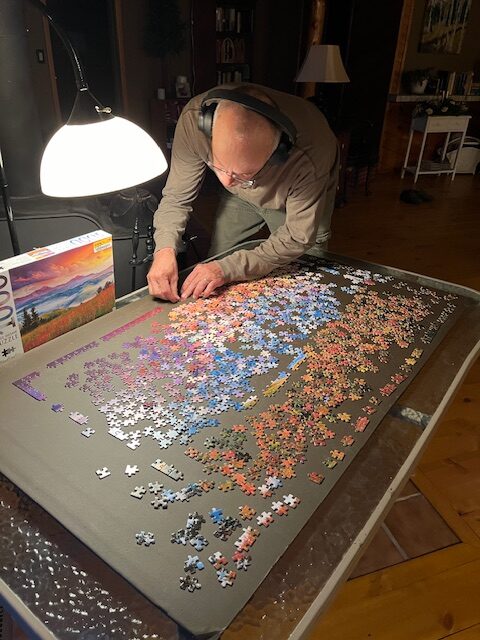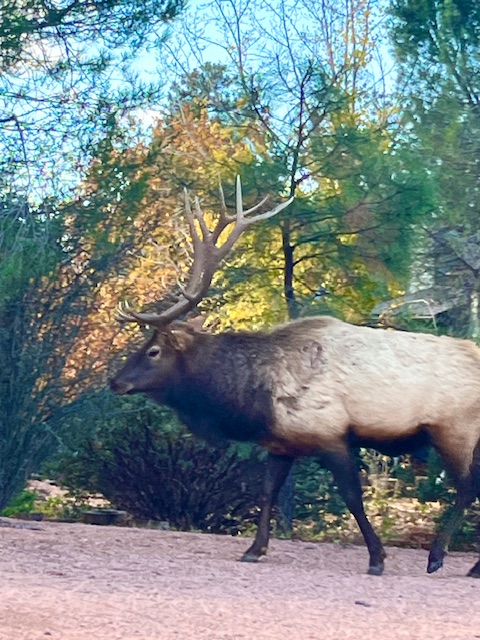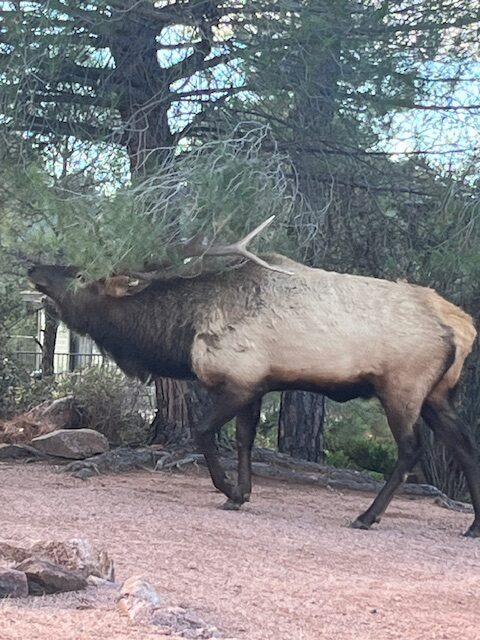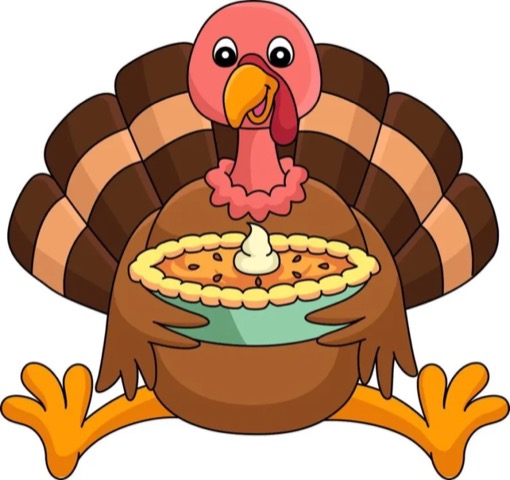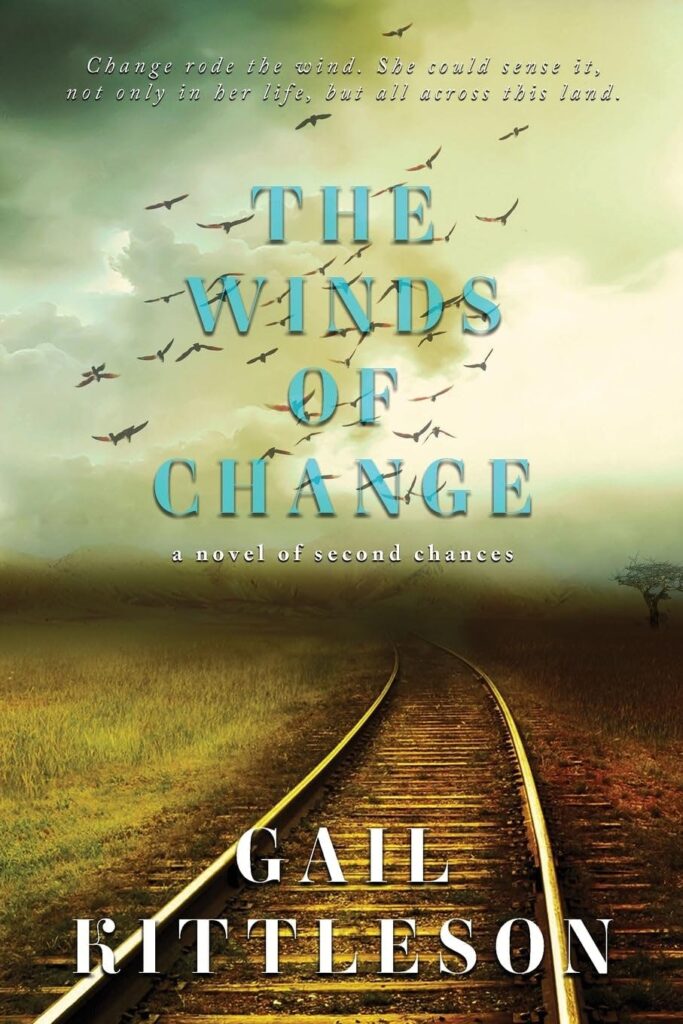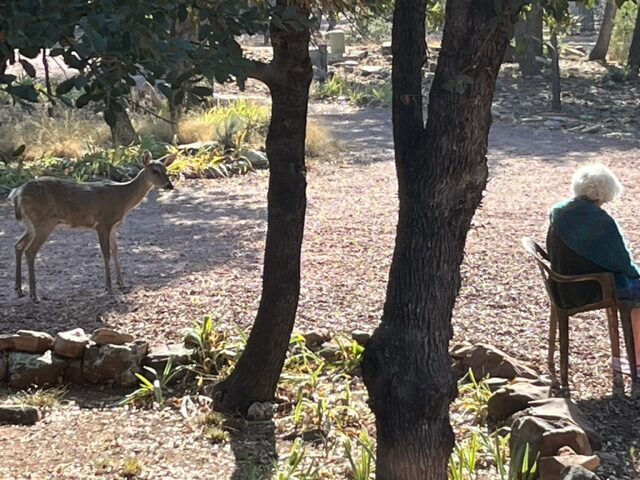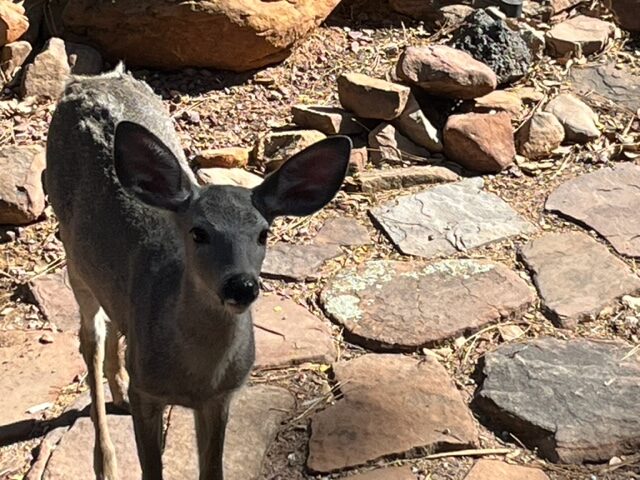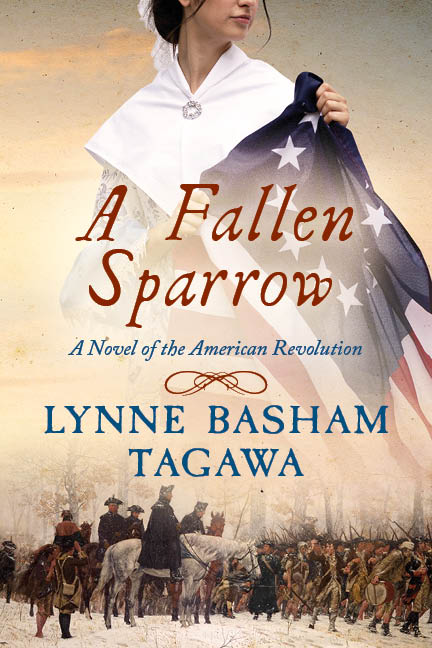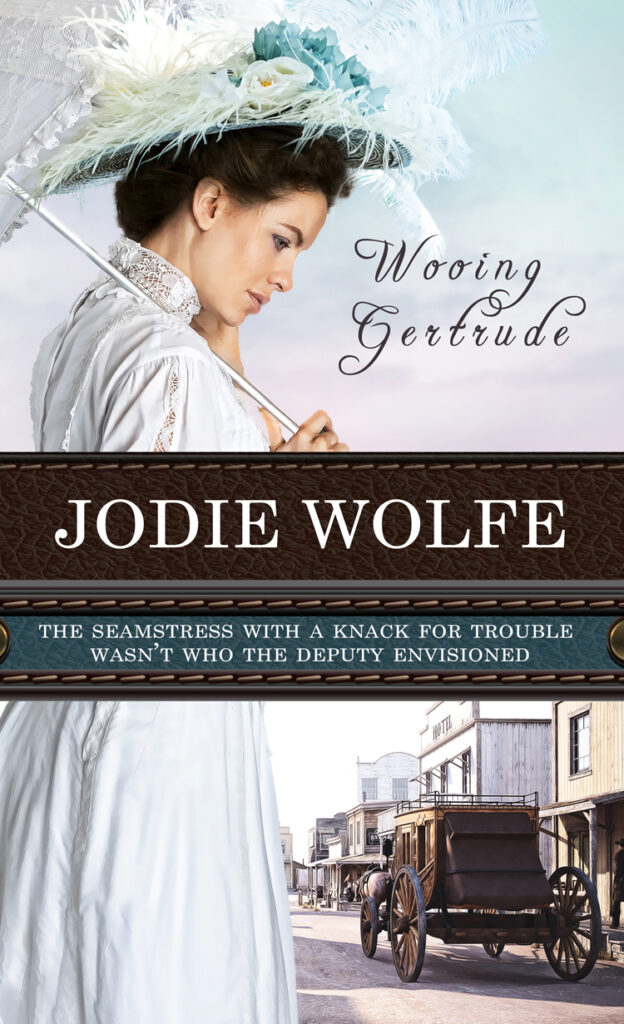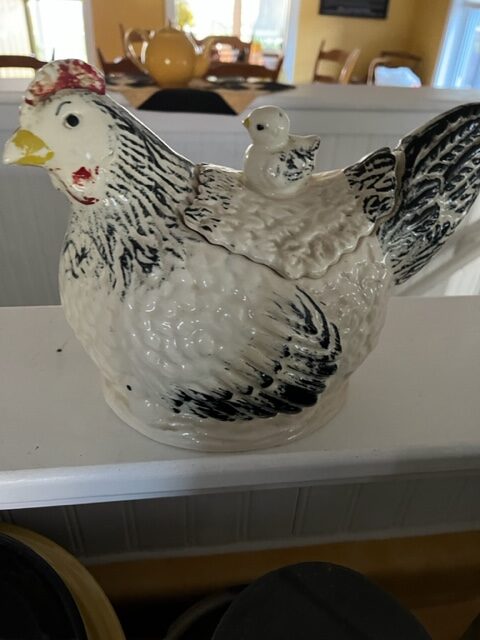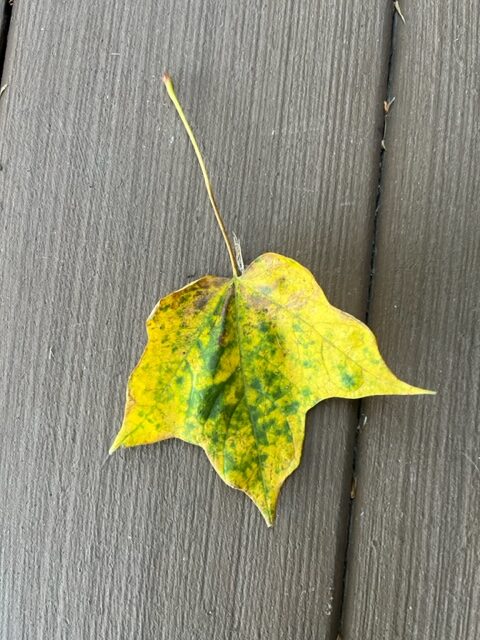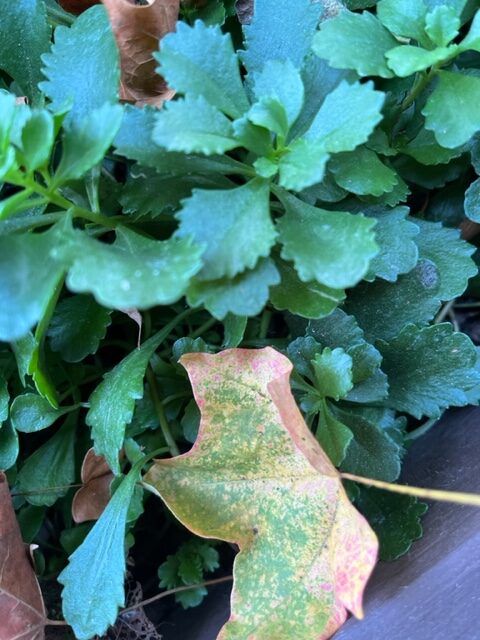I’ve gotten to know my Words With Friends partner, Erma Ullrey, a bit better. She’s a writer, too, and it’s fun to banter as we endeavor to beat each other at the Scrabble-like game.
Just recently I learned more about the story she her husband have lived for the past six years–what a challenge they’ve faced! During this time Erma has written a children’s book…here’s the cover. Don’t you love the concept of a snowflake afraid to fall because it knows it’ll melt?
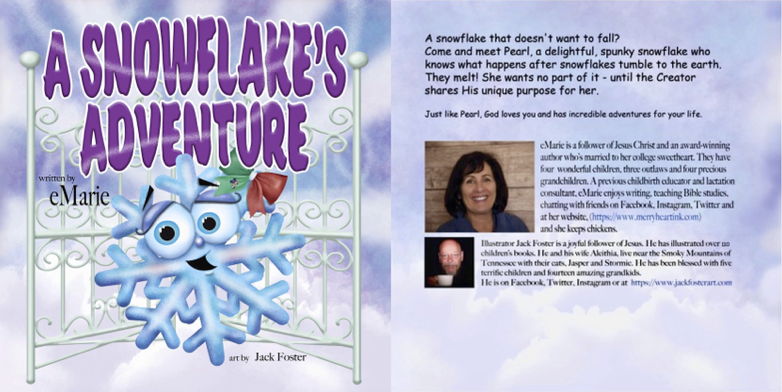
You can read all about it as we reflect on Christmas 2023 and the New Year. May Erma’s words increase our appreciation for every breath we take.
CHRISTMAS IS…God’s Breath of Life
By eMarie
More than six years ago, my husband Bert and I reeled when he received the staggering diagnosis of stage 4 cancer. No signs or symptoms, and never a history of cancer in his family. From that moment on, when he fell on his knees, I knelt beside him. When he rose up in faith, I cheered him on. When he felt well, we celebrated.
I wore an impenetrable stoic face all day, every day. Although I believed God and took Him at His word, in my quiet moments I felt and acted more like Jacob. I didn’t have a visible wrestling match with the Lord, but an intense spiritual battle raged. Especially after reading the statistical prognosis for Bert’s disease. “Hopeless” fit the percentage. The doctors had already told us as much. But faith said these outcomes and statistics hadn’t met our God. Faith said nothing is impossible with Him.
The Lord invites us in Hebrews to come and reason with Him.
I came, but I was beyond reason. I didn’t have the peace of an overcomer, the peace that insured the battle had been won. I cried out to the Lord asking, wanting, needing something personal from Him. Something to demonstrate that even though I didn’t see it, He was at work, able to heal sicknesses of every kind, including cancer. That He cared about what was happening to Bert. That every promise in His word was still true and still ours. Jehovah would continue to be faithful, able, and in control of every aspect of our lives.
A snapshot flashed across my mind. I glimpsed the crossroads in Sacramento, CA where I first became a believer at age 19. Then, as if He needed it, I reminded the Lord of His covenant, His many promises throughout all generations. And that one of His names is Emmanuel—God with us. I prayed – Lord, if you’re still with us, show me that you are.
Crickets.
.
https://unsplash.com/@jannerboy62
I got in the car that day to go to lunch with a group of Bible study friends. As I pulled into the parking lot of the restaurant, I again asked for some revelation that He was the same miracle-working God.
Beyond frustrated with this unanswered prayer, I walked up to the restaurant and released a deep exhale. As I watched, my breath formed a vapor, lingering in the frosty air.
God’s word awakened my spirit.
“Then the Lord God formed man of dust from the ground, and breathed into his nostrils the breath of life…” (Gen. 2:7)
I stood stunned at the answer He’d shown me!
Every breath was, is, and always will be proof of God’s existence, love, faithfulness. He graciously made visible to me what He’d provided all along. Life! For, from, by, and in Him!
My wrestling ended there and then, and a deeper sense of wonder was birthed. That afternoon, in an effort to capture what God graciously demonstrated in that spine-tingling moment, I penned the first words to A Snowflake’s Adventure.
…six years later, by God’s grace and strength, my husband praises the Lord for each new day he’s been given to live for Him.
A Snowflake’s Adventure is a story of God’s breath of life to every child He’s ever created. Unique. Purposeful. We are His one-of-a-kind design. Each. And. Every. One.
MERRY CHRISTMAS!!!
(To the glory of God, we have donated A Snowflake’s Adventure, a #1 Amazon children’s book to more than 500 children around the world through OCC/Samaritan’s Purse. For every book sold, one is donated!)
I appreciate your purchases, and please leave a review on Amazon. Thank you! www.amazon.com/Snowflakes-Adventure-eMarie/dp/B09HFXX3N
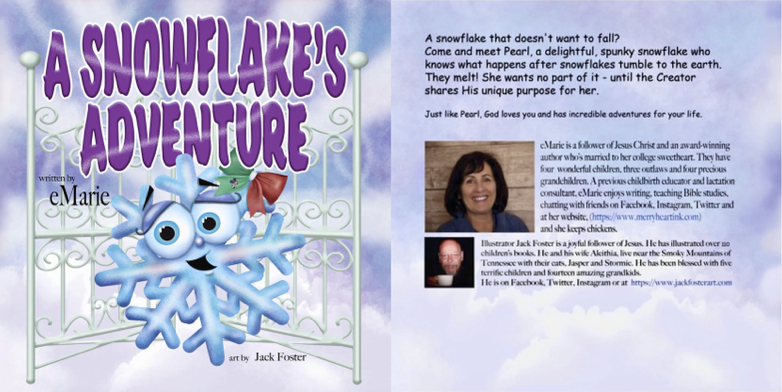


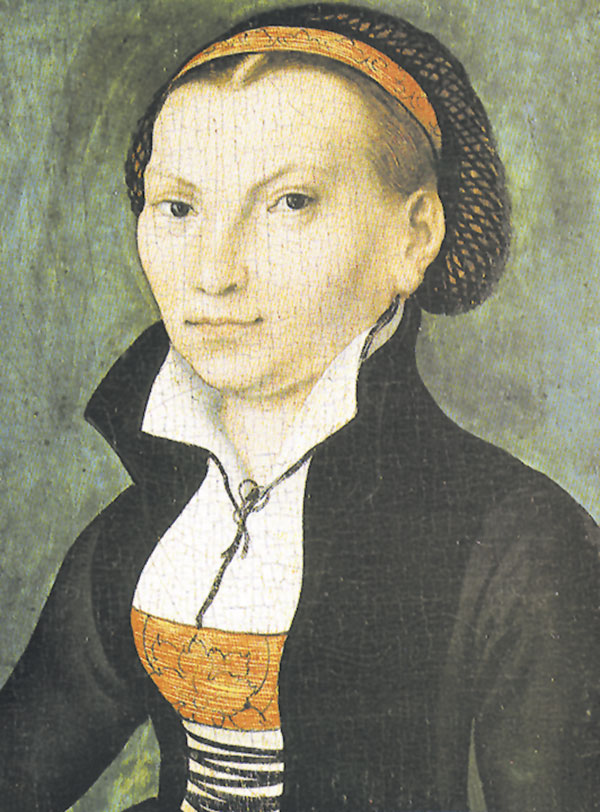 KATHERINA VON BORA’S LIFE was one of hard work and solid virtue. When she was a young girl, her father placed her in a German convent following his remarriage. She heard Luther’s teachings in her early twenties and accepted his doctrine of justification by faith alone. With some other nuns she contacted the reformer, requesting help to escape the convent. Luther arranged for a delivery-man to smuggle the women out in empty fish barrels. Luther asked the families of the young women to take them back. When they proved unwilling, he found husbands for all of them. However, he was not able to find a place for Katie. Eventually he proposed to her and married her the same day. They seem to have been a happy couple. Her hard work and practical domestic skills (budgeting, raising livestock, and brewing beer) fed and clothed them, their children, several orphans, and the many students who boarded with them. After Luther’s death, Katie reared their younger children alone for six years. Elector John Frederick, the ruler of Saxony, set up a small trust fund and helped her purchase a farm near Wittenberg. However, her land was taxed unmercifully by contending armies during the Schmalkaldic War, leaving her in crushing poverty. As a result, she had to flee. Her animals were confiscated and her house burned to the ground. After peace was restored, Katie borrowed a thousand gulden to rebuild. To repay her loan, she took student boarders. When plague broke out in Wittenberg in 1552, the university staff and students moved to Torgau, a place less affected by the disease. With her boarders gone, Katherina was again in dire financial straits. She decided to follow the university, but her decision proved catastrophic. At the end of the sixty mile trip, not far from the gate of Torgau, her horses bolted and she had to leap from the wagon into a lake. She was lifted from the water severely bruised. Friends carried her into the city. Although she fought for life for three months, the pain and hardships of her latter years sealed her inevitable end. Her last recorded words were, “I will cling to my Lord Christ as a burr on a coat.” On this day, 20 December 1552 she died. Next day, the entire university turned out for her funeral.—Dan Graves
KATHERINA VON BORA’S LIFE was one of hard work and solid virtue. When she was a young girl, her father placed her in a German convent following his remarriage. She heard Luther’s teachings in her early twenties and accepted his doctrine of justification by faith alone. With some other nuns she contacted the reformer, requesting help to escape the convent. Luther arranged for a delivery-man to smuggle the women out in empty fish barrels. Luther asked the families of the young women to take them back. When they proved unwilling, he found husbands for all of them. However, he was not able to find a place for Katie. Eventually he proposed to her and married her the same day. They seem to have been a happy couple. Her hard work and practical domestic skills (budgeting, raising livestock, and brewing beer) fed and clothed them, their children, several orphans, and the many students who boarded with them. After Luther’s death, Katie reared their younger children alone for six years. Elector John Frederick, the ruler of Saxony, set up a small trust fund and helped her purchase a farm near Wittenberg. However, her land was taxed unmercifully by contending armies during the Schmalkaldic War, leaving her in crushing poverty. As a result, she had to flee. Her animals were confiscated and her house burned to the ground. After peace was restored, Katie borrowed a thousand gulden to rebuild. To repay her loan, she took student boarders. When plague broke out in Wittenberg in 1552, the university staff and students moved to Torgau, a place less affected by the disease. With her boarders gone, Katherina was again in dire financial straits. She decided to follow the university, but her decision proved catastrophic. At the end of the sixty mile trip, not far from the gate of Torgau, her horses bolted and she had to leap from the wagon into a lake. She was lifted from the water severely bruised. Friends carried her into the city. Although she fought for life for three months, the pain and hardships of her latter years sealed her inevitable end. Her last recorded words were, “I will cling to my Lord Christ as a burr on a coat.” On this day, 20 December 1552 she died. Next day, the entire university turned out for her funeral.—Dan Graves